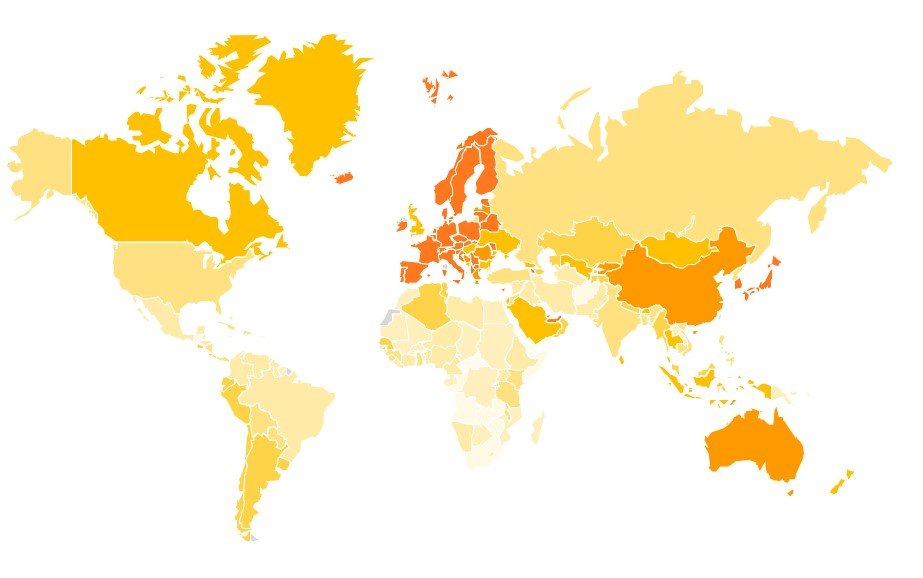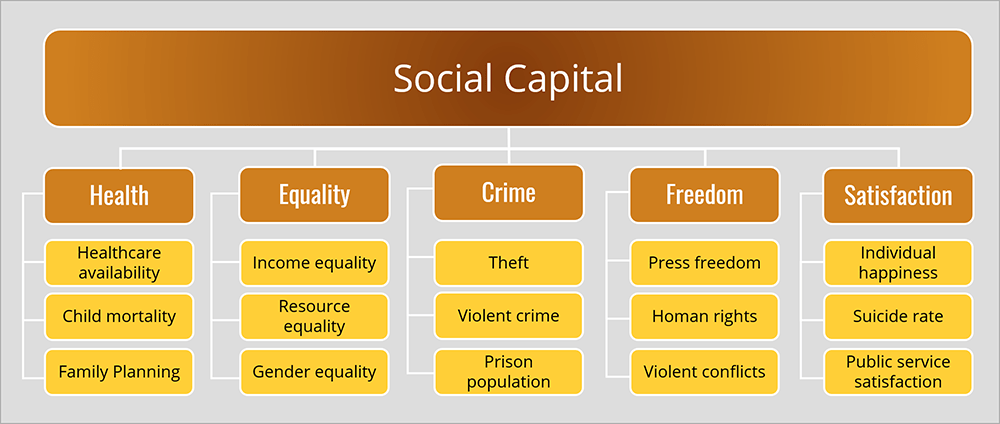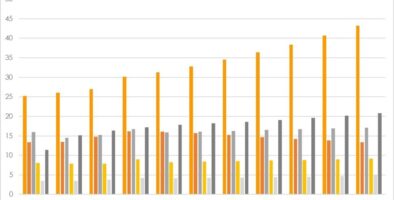The Social Capital Index
The Social Capital Index is a sub-index of the Global Sustainable Competitiveness Index (GSCI), The Social Capital of a nation is the sum of social stability and the well-being (perceived or real) of the entire population. Social Capital generates social cohesion and a certain level of consensus, which in turn delivers a stable environment for the economy, and prevents natural resources from being over-exploited.
The results of the 2020 Social Capital Index:
- The Social Capital Index is a Scandinavian domain – it is topped by Iceland, followed by Norway, Sweden, and Finland, while Denmark ranks 14
- The only non-European nations in the top 20 are Japan (13), Singapore (15) and South Korea (17)
- The USA is ranked 109 – due to comparable high crime rates, low availability of health services, and rising inequality
- The UK is ranked 43, reflecting the deteriorating social fabric.
- China is ranked 31, India 137, Russia 99, and Brazil 123
- The highest ranked South American country are Costa Rica (62), Argentina (66) and Ecuador (69);
- The highest-ranking African country are Senegal (80) and Burkina Faso (83).
Read more here, download the report, or the index rankings
The Social Capital Index World Map:

Social Capital
Social Capital is not a tangible value and therefore hard to measure and evaluate in numeric values. In addition to local historical and cultural influences, the social consensus in a society is affected by several factors:
- health care systems and their universal availability/affordability (measuring physical health);
- income and asset equality, which are correlated to crime levels;
- demographic structure (to assess the future generational balance within a society);
- freedom of expression, freedom from fear and
- the absence of violent conflicts
All of these elements are required for businesses to be able to generate value. The more stable the social consensus – the higher the social capital – the better businesses can operate.

While a direct connection of social cohesion to creating wealth and sustain economic development might be difficult to establish scientifically, a certain degree of equality, adequate health systems, freedom from fear and equal opportunities (without which no American Dream ever would have been possible) are pre-requisites to achieve the same.
The absence or deterioration of social cohesion in turn leads to lower productivity (health), rising crime rates, and potentially social unrest, paralysing economic development and growth.
Downloads:
A detailed Report as well as individual country scores for 180 nations can be downloaded here.
A 6-page report presenting key data and trends is now available for each country – visit here to download country reports.


